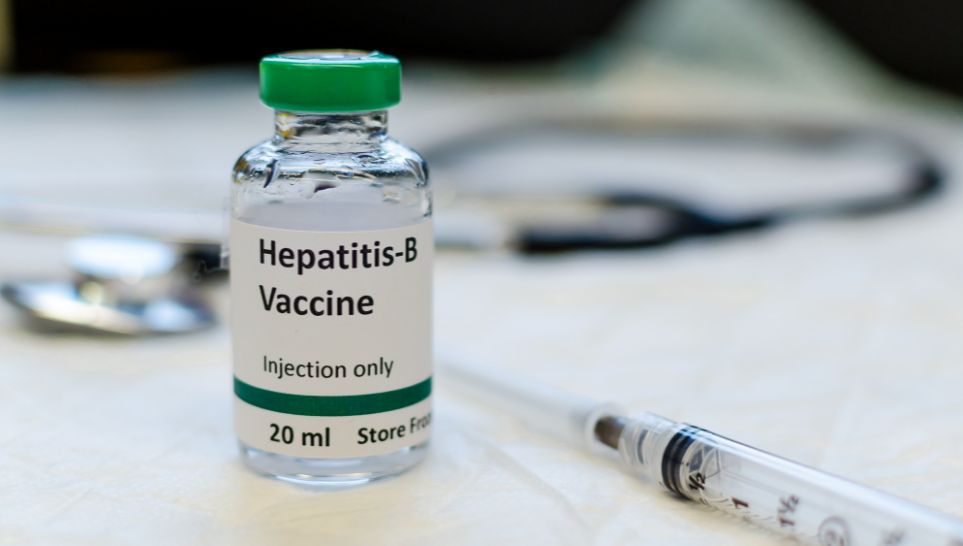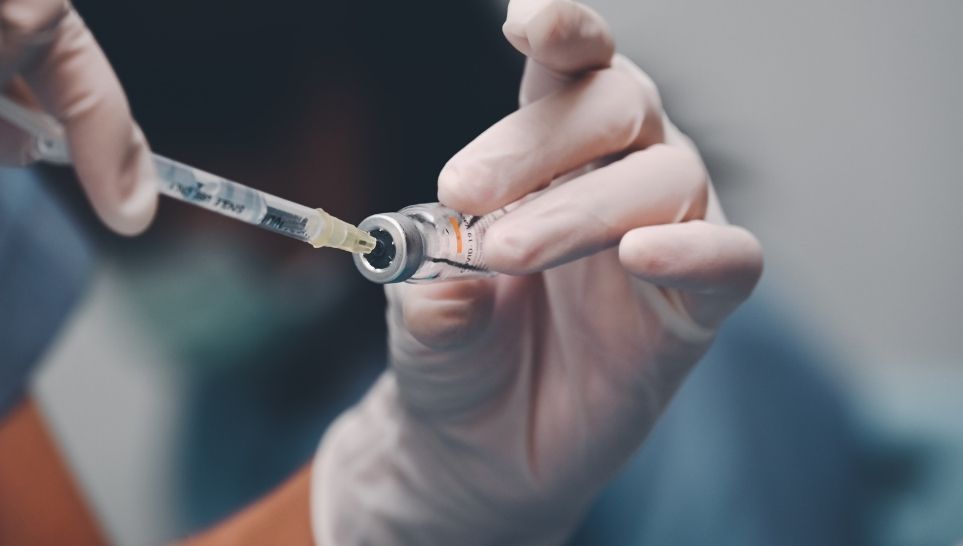In the wake of the COVID-19 pandemic, many people have experienced major changes in their lives and health. Beyond long COVID and related conditions, you may have heard talk about a medical condition referred to as COVID-19 neuropathy. In this guide, we’ll discuss what this condition is, the research that has been done, COVID neuropathy symptoms, and how to prevent it.
What Is COVID Neuropathy?
COVID neuropathy is a term that doctors use to describe damage to the central nervous system during or after contracting COVID-19. Patients experience COVID neuropathy after having the virus itself, as a result of medication taken for the symptoms and due to inflammation as the immune system responds to the virus.
There were also reports of neuropathy symptoms occurring after taking the COVID-19 vaccines.
Neuropathy
Neuropathy, often referred to as peripheral neuropathy, is a general term to describe weakened or damaged nerves. Viruses or diseases can result in short-term or long-term neuropathy. For example, doctors now understand that HIV causes neuropathy — but health professionals didn’t know that until well into the AIDS epidemic.
The brain, spinal cord, and nerves make up the central nervous system, which sits at the center of this issue. This system lets different parts of your body communicate — it’s what makes your foot kick when your doctor taps your knee to check your reflexes. Neuropathy can impact your life in many ways by making it difficult to move freely and comfortably.
COVID Neuropathy
Those with underlying conditions have a higher likelihood of experiencing COVID neuropathy because they are more likely to contract the virus in the first place. An underlying condition could also increase inflammation, which can lead to neuropathy.
The Washington University School of Medicine reported that in studying 1,500 COVID patients, those who had COVID-19 were three times as likely to experience symptoms associated with neuropathy.
How Does COVID-19 Affect the Nervous System?
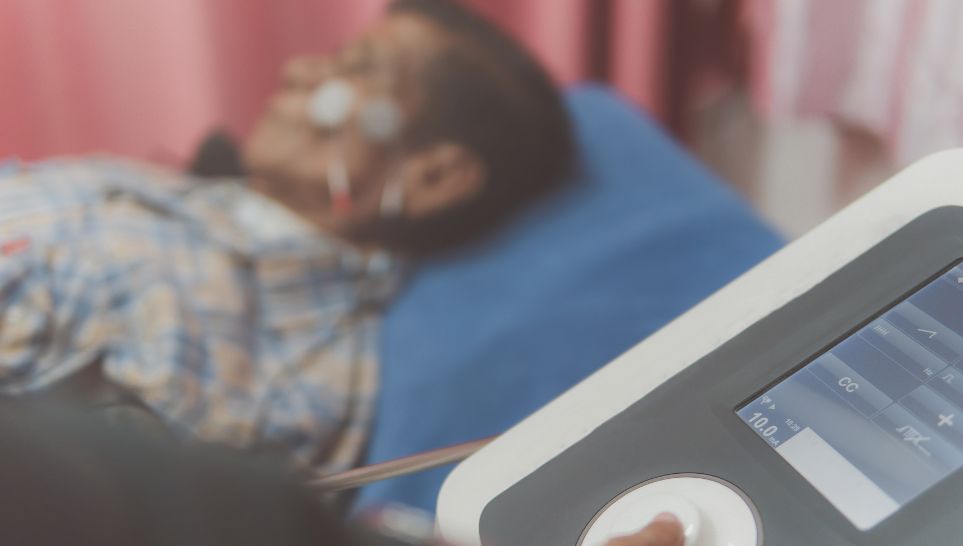
While researchers have not officially recognized COVID neuropathy as an official syndrome with diagnostic criteria, it is indisputable that COVID-19 has affected the nervous systems of many patients. That is, rather than the virus directly impacting the nervous system, the body’s response to it and its treatments can cause damage to the nervous system.
To fight COVID-19, the immune system produces antibodies. These antibodies affect how the central nervous system operates. More accurately, they affect the brain, a main component of the central nervous system.
Viruses infect your body by attaching themselves to molecules throughout your body’s cells. The COVID-19 virus is no different. Though the virus mainly impacts the lungs, it weakens other blood vessels and arteries throughout the body.
When the virus reaches parts of the brain, it causes blood vessels to leak. This, in combination with the inflammation that results from the immune system fighting the virus, can cause damage. Damage to the brain makes patients more likely to experience strokes.
Many patients who contract COVID-19 experience low oxygen levels. When oxygen levels fall low enough, it can cause damage to the brain and may have long-term effects even after the patient recovers from COVID-19.
Low oxygen levels, inflammation, and blood vessel leaks in the brain may alter the brain’s white matter. This part of the brain communicates signals throughout the body and is a huge part of how the central nervous system operates. Again, this “white matter disease” is not a direct response to COVID-19 but a possible effect of the body’s response to it.
Researchers have associated several conditions with the immune system’s response to COVID-19:
- Dysautonomia
- Acute disseminated encephalomyelitis
- Transverse myelitis
- Facial nerve palsies
- Acute necrotizing hemorrhagic encephalopathy
These are all disorders linked to the central nervous system and may cause inflammation, an irregular heart rate, nerve damage, and other symptoms.
Symptoms of COVID Neuropathy
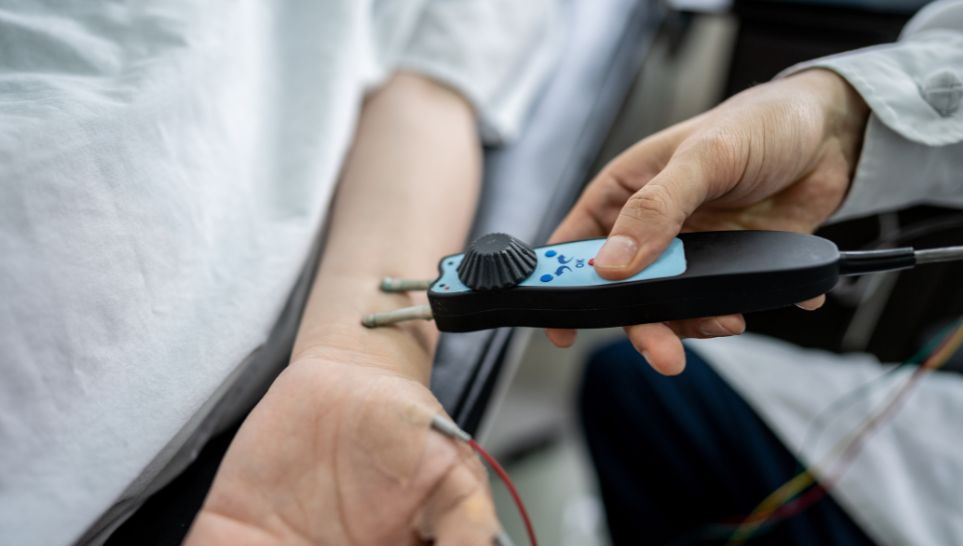
COVID neuropathy is generally less scary than the other effects described above. Neuropathy causes tingling or numbness in certain areas of the body. Other nervous-system-associated symptoms of COVID-19 include dizziness, lack of or altered taste and smell, headaches, and muscle aches. These may be related to symptoms of COVID neuropathy.
Disorders linked to COVID neuropathy include Guillain-Barré syndrome and transverse myelitis, both caused by inflammation. Guillain-Barre syndrome specifically impacts nerves, which is why it is so closely associated with neuropathy effects following a patient’s experience with COVID-19.
The most common symptom of COVID neuropathy is overwhelming tingling and numbness in parts of your body. These symptoms are the result of damage to peripheral nerves. When those nerves can no longer do their job — sending signals to the rest of the nervous system and body — patients experience numbness or tingling.
More specific symptoms depend on the type of nerve neuropathy being targeted. Peripheral neuropathy impacts three major types of nerves.
- Motor nerves
- Sensory nerves
- Autonomic nerves
Motor nerves control the muscles. A range of activities, from sprinting to smiling, use motor nerves. When they sustain damage, patients experience pain or soreness in their muscles. Their muscles might also feel abnormally weak or fatigued.
Neuropathy most commonly impacts the sensory nerves, which control sight, taste, smell, touch, and hearing. So, when they’re damaged, those senses will be too. This is the source of the numbness and tingling sensations.
Finally, autonomic nerves take responsibility for all of the things your body does unconsciously to keep you alive, like breathing and keeping your heart beating. That’s all possible because autonomic nerves send signals to the rest of the body to keep them happening. Without autonomic nervous system regulation, patients experience racing heartbeats, low blood pressure, and excess sweating.
COVID Neuropathy Treatment and Prevention
The best way to avoid COVID neuropathy is to first avoid COVID-19. Take all the precautions you can, especially if you have an underlying condition that is sensitive to inflammation. Take advantage of telehealth medicine when you can, and wash your hands frequently. Wearing a mask is never a bad idea!
The good news is that when people experience COVID neuropathy, it is typically a short-term effect that goes away. However, others have lingering effects. Medical professionals continue to study the long-term effects of COVID, including COVID neuropathy. If you’re worried about lingering symptoms from COVID, like COVID neuropathy, contact your doctor as soon as possible.
Vaccine Claims for COVID Neuropathy
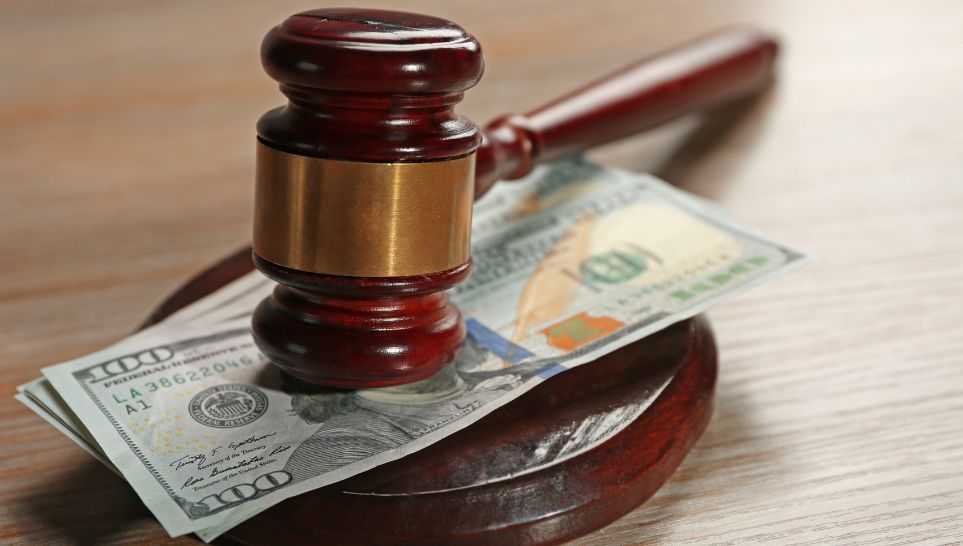
The majority of people who received the COVID vaccines and boosters experienced no neurological effects. Some experienced short-term side effects, though usually nothing worse than flu-like symptoms.
Guillain-Barré syndrome, however, has been linked to two specific virally delivered vaccines in the UK. While the FDA is still studying these effects, they’re very uncommon in the general population. In fact, you’re more likely to develop Guillain-Barre syndrome if you aren’t vaccinated and contract COVID-19.
If your doctor diagnosed you with COVID neuropathy after you received one of the COVID vaccines, you may have grounds to file a claim with the National Vaccine Injury Compensation Program. We will help you investigate the issue and seek medical evidence to support your claim to pursue compensation.
If you’re concerned that the COVID-19 vaccine, or any other vaccine, has caused damage to you or a loved one, you don’t have to navigate your vaccine claim alone. Contact Sadaka Law at 1 (800) 810-3457 to discuss your options with an experienced lawyer today.





